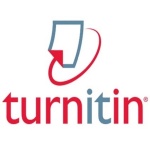Pengaruh Practice Based Simulation Model Terhadap Peningkatan Psikomotor dan Self Efficacy
DOI:
https://doi.org/10.33862/citradelima.v5i2.259Keywords:
Practice based simulation model (PBSM), Psikomotor, self efficacy, Mahasiswa Keperawatan×Abstract
Patient Simulation that can play a significant role or High Fidelity Simulation (HFS) has not been widely applied in Indonesia. A practice-based simulation model (PBSM) is an alternative to HFS because it can affect skill performance and self-efficacy. The purpose of this study was to analyze the effect of PBSM on the psychomotor and self-efficacy of nursing students in the nursing skill laboratory. The study used a quantitative method (Quasy Experiment), with a pretest-posttest approach without a control group. The population of this study was students at STIKes PMC Pekanbaru. Sampling using nonprobability sampling technique with 32 respondents and data analysis using Wilcoxon. PBSM affects psychomotor and self-efficacy (p) 0.000 <0.05, the ability to think consciously has a relatively limited capacity in the brain so it needs to be trained with various scientific approaches and PBSM is proven to be effective in increasing psychomotor and self-efficacy. PBSM has the advantage of increasing students' psychomotor and self-efficacy, but it is necessary to do a further in-depth study of the PBSM method with a more different method, duration of time, and measurement technique.
Downloads
References
Curl, E.D., Smith, S., Chisholm, L.A., Mcgee, L.A., Das, K., (2016). Effectiveness Of Integrated Simulation And Clinical Experiences Compared To Traditional Clinical Experiences For Nursing Students. Nurs. Educ. Perspect. 37, 72–77.
E. Suryadi, S. M. (2008). Pendidikan Di Laboratorium Keterampilan Klinik (Vol. 1). Fakultas Kedokteran - Universitas Gadjah Mada.
Jeffries, P.R., Rodgers, B., Adamson, K., (2015). Nln Jeffries Simulation Theory: Brief Narrative Description. Nurs. Educ. Perspect. 36, 292–293.
Ko, E., Kim, H.Y., (2014). Effects Of Multi-Mode Simulation Learning On Nursing Students’ Critical Thinking Disposition, Problem Solving Process, And Clinical Competence. Korean J. Adult Nurs. 26, 107. Https://Doi.Org/10.7475/Kjan.2014.26.1.107
Lee, S.J., Park, Y.M., Noh, S.M., (2013). The Effects Of Simulation Training With Hybrid Model For Nursing Students On Nursing Performance Ability And Self Confidence. Korean J. Adult Nurs. 25, 170–182.
Lewis, E. J. (2010).How Accelerated Nursing Student Learn: A Comparative Case Study Of The Facilitators, Barriers, Learning Srtrategies,Challenges And Obstacles Of Students In An Accelerated Nursing Program. . Phd Dissertation, The University Of Wisconsin-Milwaukee.
Mabry, J., Lee, E., Roberts, T., Garrett, R., (2020). Virtual Simulation To Increase Self-Efficacy Through Deliberate Practice. Nurse Educ. 45, 202–205. Https://Doi.Org/10.1097/Nne.0000000000000758
Mcmahon, E.M., Corcoran, P., O’regan, G., Keeley, H., Cannon, M., Carli, V., Wasserman, C., Hadlaczky, G., Sarchiapone, M., Apter, A., (2017). Physical Activity In European Adolescents And Associations With Anxiety, Depression And Well-Being. Eur. Child Adolesc. Psychiatry 26, 111–122.
Mrunalini, M.R., Pachandekar, P.D.M., N.D. Factors Affecting The Teaching-Learning In Nursing Education.
Nurfitriani, A.A., Indria, D.M., Firmansyah, M., (2020). Hubungan Proses Pembelajaran Berbasis Problem Based Learning (Pbl) Dengan Metode Konstruktif Dan Kontekstual Terhadap Performa Akademik Mahasiswa Kedokteran. J. Bio Komplementer Med. 7.
Park, M.Y., Mcmillan, M.A., Conway, J.F., Cleary, S.R., Murphy, L., Griffiths, S.K., (2013). Practice-Based Simulation Model: A Curriculum Innovation To Enhance The Critical Thinking Skills Of Nursing Students. Aust. J. Adv. Nurs. Online 30, 41.
Suharto, S., Sapta, H., Kurniati, D., (2017). Proses Berpikir Kritis Siswa Kelas Xii Man 3 Jember Berdasarkan Perkembangan Usia Dalam Menyelesaikan Soal Matematika Pokok Bahasan Peluang. Kadikma 8, 52–61.







.png)





